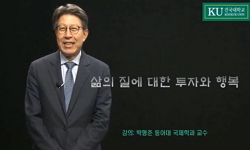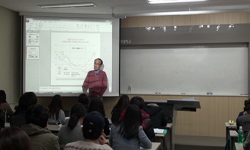This paper developed a structural model explaining leisure participants' quality of life on an existential level. To do this, previous research on the effects of subjective frequency, ego-identity, and place identity were examined. Data were collected...
http://chineseinput.net/에서 pinyin(병음)방식으로 중국어를 변환할 수 있습니다.
변환된 중국어를 복사하여 사용하시면 됩니다.
- 中文 을 입력하시려면 zhongwen을 입력하시고 space를누르시면됩니다.
- 北京 을 입력하시려면 beijing을 입력하시고 space를 누르시면 됩니다.

실존적 여가활동과 삶의 질의 관계 분석 - 자기정체성과 장소정체성을 중심으로 - = How leisure promotes quality of life?: Impact of Subjective Frequency of Leisure, Ego-Identity, and Place Identity
한글로보기부가정보
다국어 초록 (Multilingual Abstract)
This paper developed a structural model explaining leisure participants' quality of life on an existential level. To do this, previous research on the effects of subjective frequency, ego-identity, and place identity were examined. Data were collected through a field survey of 469 leisure participants in Seoul. Findings from structural analysis indicate a good fit for the proposed model; frequency of leisure, ego-identity, and place identity in the leisure participants have significant associations affecting quality of life; and ego identity acted as significant mediators. The results of the partial least square structural equation modeling analysis revealed that the frequency of leisure and the ego identity directly and positively affected the quality of life. The structural model was also examined across two groups based on participant' level of place identity (Group 1: Leisure participant with high level of place identity; Group 2: Leisure participant with low level of place identity). In general, support for the hypothesized moderating impact of place identity in the proposed model was evident in the results of the metric-invariance test. The study made new contributions to the literature on self-development through leisure activities and the moderating effects of place identity
동일학술지(권/호) 다른 논문
-
- 한양대학교 우리춤연구소
- 박지혜
- 2024
- KCI등재
-
- 한양대학교 우리춤연구소
- 나수진
- 2024
- KCI등재
-
변화하는 뮤지엄: 오르세 뮤지엄의 새로운 실천적 프로그램 분석
- 한양대학교 우리춤연구소
- 김지선
- 2024
- KCI등재




 KCI
KCI eArticle
eArticle






